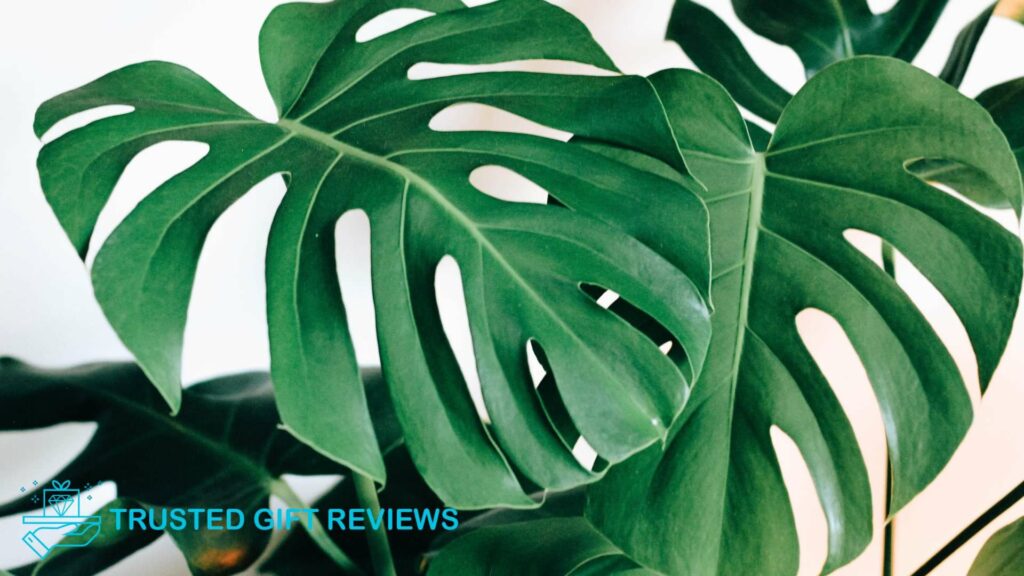For fur parents like us, our cat’s safety is always our top priority. With monsteras becoming increasingly popular, it’s understandable for many cat owners who are also green thumbs to wonder if they’re safe for their lovely feline friends.
In this article, we’ll answer all your questions regarding how safe your cats are around monstera plants. We’ll discuss the plants’ toxicity, the effects of digesting their leaves, and the things you can do to stop your cat from eating your plants.
Are monstera plants toxic to cats?


All monstera plant species are considered toxic to cats, but their effects are typically not fatal. Their leaves contain calcium oxalate that cats can’t easily digest, which causes the cats to feel some discomfort.
Although the plant is rarely fatal, the effects of eating monstera leaves can still cause a lot of pain for the cat. It’s still highly advised to contact a veterinarian promptly to ensure the health and well-being of your furry friend.
What are the common effects of monstera toxicity in cats?
Excessive Drooling


When the cat chews on monstera leaves, the needle-like calcium oxalate crystals that the leaves have come in contact with the cat’s mouth. This can lead to irritation and a burning sensation in their mouth.
To fight off this burning sensation, the cat will try to flush out the crystals by producing more saliva and drooling.
While this isn’t typically a sign of severe toxicity, you should consider the calling if the excessive drooling lasted for days.
Gastrointestinal Distress


Cats can’t easily digest the calcium oxalate crystals that monstera plants store in their leaves. Since the cat can’t digest them properly, it will try various ways to eliminate them, leading to gastrointestinal distress.
Some common signs that show your cat is experiencing gastrointestinal distress are diarrhea and vomiting.
Oral and Throat Irritation


Some cats have a habit of nipping on the leaves of different plants, including monstera. Whenever they do this, the sharp calcium oxalate crystals in the leaves can irritate the sensitive tissues in the cat’s mouth.
This irritation can cause your cat’s lips, tongue, and throat to swell. They may also have difficulty swallowing, leading to a poor appetite.
The irritation may also result in your cat constantly pawing at the mouth.
Lethargy and Weakness


As we’ve said earlier, eating monstera leaves can cause vomiting and diarrhea in cats. Fluid loss from these symptoms can result in dehydration, which, in turn, can lead to lethargy and weakness in your cat.
Your furry baby will also have a hard time eating, which can further lower its energy and stamina.
Difficulty Breathing


Your cat will unlikely experience labored or rapid breathing from eating a small part of the monstera. However, if your cat has difficulty breathing, it probably ate a lot of leaves, and the poisoning is quite severe.
It might also be a symptom of anaphylaxis, a severe allergic reaction that can be life-threatening if left untreated. Contact a veterinarian immediately to get help.
How long does the effect of monstera poisoning last in cats?


Monstera poisoning on cats can last from a few hours to a few days, depending on the severity of the poisoning. The larger the amount of plant ingested by the cat, the more severe the poisoning is and the longer it will take for it to recover.
You’ll probably notice immediate signs of oral irritation, like pawing at the mouth, drooling, and vomiting, within the first few hours after ingestion. If they only nip on the plant and don’t ingest it, they should be able to feel okay after these first few hours.
However, if they ingested a part of the plant, symptoms like diarrhea and continuous vomiting may persist for one to two days. They should start showing signs of improvement on the second day as the irritation will start to subside.
How do I prevent my cat from eating my monstera plant?


- Place the monstera somewhere inaccessible to the cat.
Keep your monstera plant somewhere high and inaccessible to reduce the risk of accidental ingestion. This can either be a shelf or a plant stand, or you can also hang it from the ceiling.
- Use cat-friendly deterrents.
There are a lot of cat-safe deterrents that you can use to make your monstera plants unappealing to your cat. You can use sprays with a citrusy scent on your monstera to keep your cat away.
Placing aluminum foils and double-sided tape around the monstera can also deter your cat since they can be sensitive to the texture of these items.
- Train your cat not to go near the monstera.
Training your cat to stay away from monstera is one of the most effective strategies you can do to prevent your cat from eating the plant.
Try rewarding your cat whenever it avoids the monstera. This will help the cat associate good behavior with avoiding the monstera and encourage it to keep its distance from the plant.
- Use protective barriers.
If training doesn’t seem to help much, create physical barriers around the monstera to prevent the cat from getting in contact with the plant. One common barrier plant owners use is mesh, so you can try using that, too.
- Offer cat-friendly alternatives to the monstera.
One of the main reasons your cat keeps getting near your monstera is their impulse to chew. By providing safe alternatives like cat grass and catnip, you’re diverting their attention from the plant and satisfying their chewing needs.
- Keep your place entertaining for the cat.
Equip your place with a lot of cat toys and scratching posts to keep them entertained and stimulated. This can divert their attention from the plant and stop them from getting near it.
What indoor plants that are not toxic to cats can I grow as a substitute for monstera?


Having a monstera plant in your home can be too risky if you have a cat at home, especially if it’s still a baby. Instead of these toxic plants, you can grow other plants that won’t pose harm to your fur baby.
Here are some of the cat-safe plants that you can grow as an alternative to monstera plants:
- Parlor palm
- Boston fern
- Spider plant
- African violet
- Air plants
- Bromeliads
- Watermelon peperomia
- Orchid
- Polka dot plant
- Rattlesnake plant
Are monstera plants toxic to other pets too?


Monstera plants are toxic to almost all types of pets, not just cats. The primary concern lies in the presence of calcium oxalate crystals in the plant, which can cause irritation to almost all animals.
Small mammals, like rabbits, guinea pigs, and hamsters, are less likely to chew on houseplants compared to dogs and cats. However, if they do ingest a part of the monstera, they’ll also suffer the same effects.
If you have multiple pets in your household, it might be best to look for an alternative plant, as it can be hard to monitor all of them.
Are monstera plants toxic to humans?


Monstera plants are mildly toxic to humans and can cause skin and oral irritation. However, they pose less risk since humans aren’t likely to eat the leaves unless it’s a toddler.
If you have sensitive skin, avoid getting in direct contact with the plant, as this can cause redness, itching, and irritation. It’s best to wear a glove whenever you’re working with the plant.




